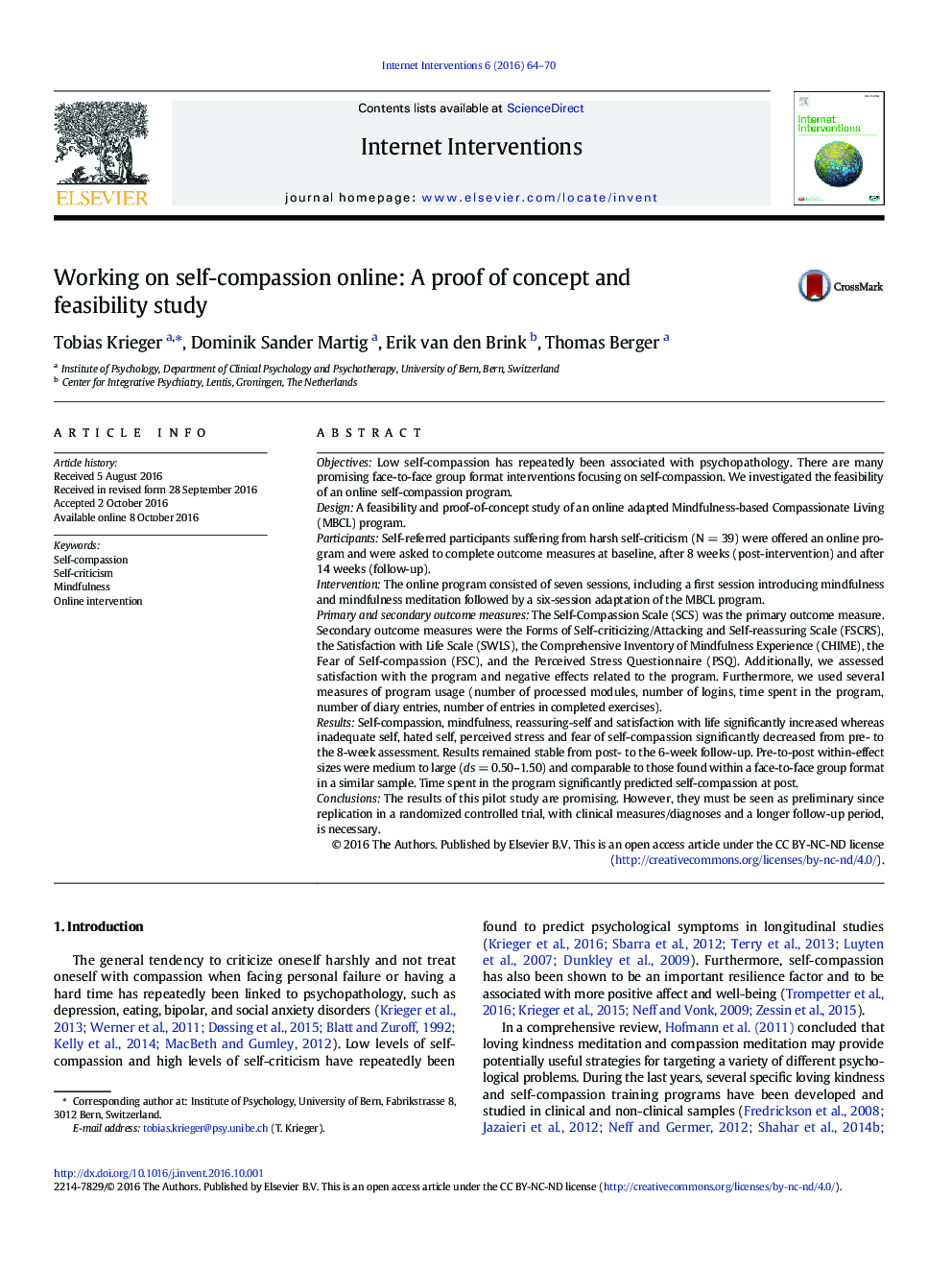| کد مقاله | کد نشریه | سال انتشار | مقاله انگلیسی | نسخه تمام متن |
|---|---|---|---|---|
| 4972750 | 1451170 | 2016 | 7 صفحه PDF | دانلود رایگان |
- An online intervention, based on Mindfulness-Based Compassionate Living (MBCL), showed to be feasible and led to changes in self-compassion.
- Changes are maintained at 6-week follow-up.
- The online intervention can be considered save and no serious negative effects were reported.
- Time spent in the program significantly predicted self-compassion at 8-week assessment.
- Replication in a randomized controlled trial, including clinical measures/diagnoses and a longer follow-up period, is necessary.
ObjectivesLow self-compassion has repeatedly been associated with psychopathology. There are many promising face-to-face group format interventions focusing on self-compassion. We investigated the feasibility of an online self-compassion program.DesignA feasibility and proof-of-concept study of an online adapted Mindfulness-based Compassionate Living (MBCL) program.ParticipantsSelf-referred participants suffering from harsh self-criticism (N = 39) were offered an online program and were asked to complete outcome measures at baseline, after 8 weeks (post-intervention) and after 14 weeks (follow-up).InterventionThe online program consisted of seven sessions, including a first session introducing mindfulness and mindfulness meditation followed by a six-session adaptation of the MBCL program.Primary and secondary outcome measuresThe Self-Compassion Scale (SCS) was the primary outcome measure. Secondary outcome measures were the Forms of Self-criticizing/Attacking and Self-reassuring Scale (FSCRS), the Satisfaction with Life Scale (SWLS), the Comprehensive Inventory of Mindfulness Experience (CHIME), the Fear of Self-compassion (FSC), and the Perceived Stress Questionnaire (PSQ). Additionally, we assessed satisfaction with the program and negative effects related to the program. Furthermore, we used several measures of program usage (number of processed modules, number of logins, time spent in the program, number of diary entries, number of entries in completed exercises).ResultsSelf-compassion, mindfulness, reassuring-self and satisfaction with life significantly increased whereas inadequate self, hated self, perceived stress and fear of self-compassion significantly decreased from pre- to the 8-week assessment. Results remained stable from post- to the 6-week follow-up. Pre-to-post within-effect sizes were medium to large (ds = 0.50-1.50) and comparable to those found within a face-to-face group format in a similar sample. Time spent in the program significantly predicted self-compassion at post.ConclusionsThe results of this pilot study are promising. However, they must be seen as preliminary since replication in a randomized controlled trial, with clinical measures/diagnoses and a longer follow-up period, is necessary.
Journal: Internet Interventions - Volume 6, November 2016, Pages 64-70
